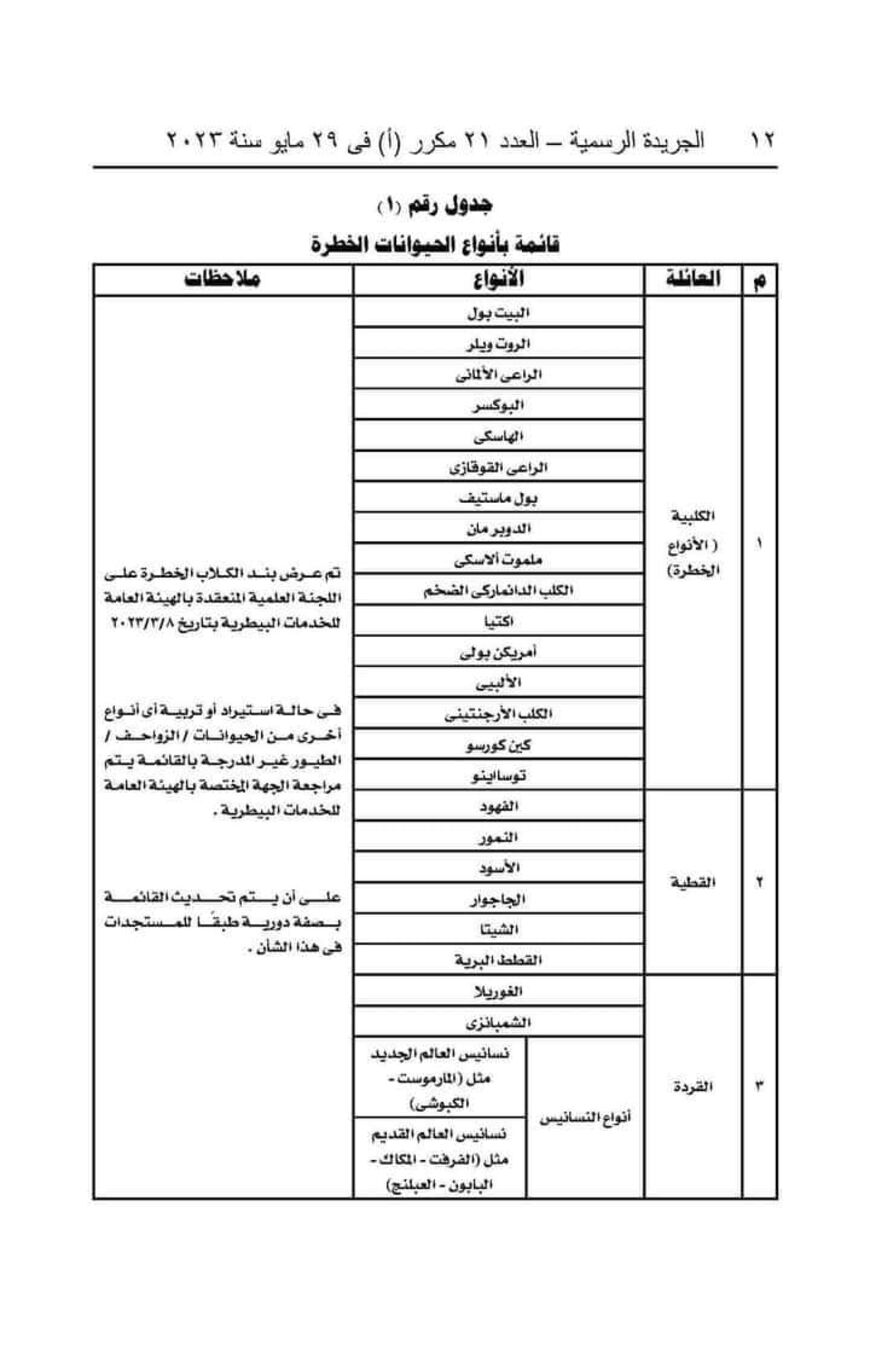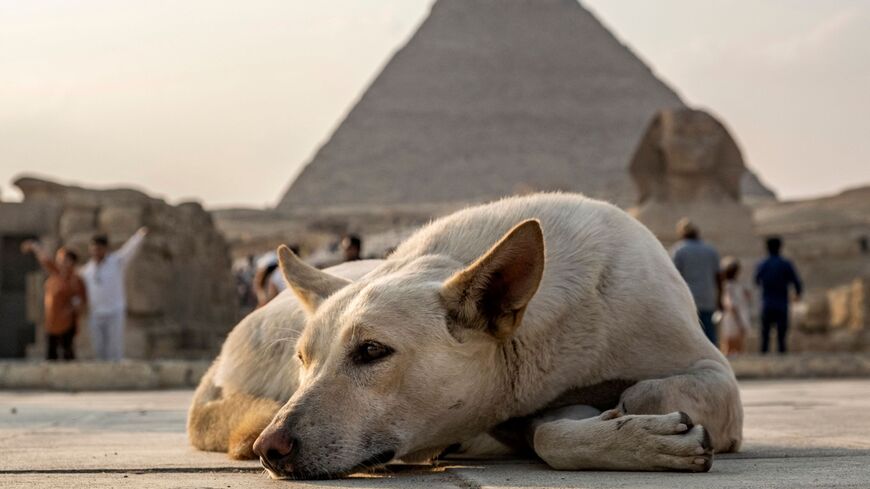CAIRO — The Egyptian authorities recently enacted a law that effectively outlaws the ownership of specific dog breeds.
The new bill — "Regulation of the Possession of Dangerous Animals and Dogs" — was introduced May 29, sparking concerns among dog enthusiasts and animal rights advocates in the country.
The law provided a list of dog breeds deemed "dangerous" and unsuitable for ownership without thorough safety inspections, including the husky, German shepherd and Great Dane.
Owners of these breeds must either surrender their pets within a month or prepare for confiscatory raids. The law will allow ownership of only 10 breeds without inspection — the cocker spaniel, Labrador, poodle, Malinois, Pomeranian, Jack Russell terrier, white shepherd, Maltese dog and Samoyed — and imposes stringent regulations on breeds such as the pit bull, Rottweiler, German shepherd, boxer, husky, Caucasian shepherd and bull mastiff.
Ahmed, owner of three dogs — two of which are banned under the new law, a Bull Terrier and a German shepherd — told Al-Monitor he is worried about their safety. He has called vets and police officers for reassurance, but they told him that he probably shouldn't worry since it would take a while for the law to be enforced — but they provided little assurance otherwise. He is now applying for pet travel documents for his dogs.

The Official Gazette listing of the banned dog breeds.
Lobna moved her two German shepherds to her family's farm in Giza in 2021, after her Emirati-run residential compound in Cairo issued a ban on 15 dog breeds for the compound, including the 10 breeds now banned by the government. She told Al-Monitor that this law is reviving her trauma of having to part with her dogs two years ago. Two of her friends have asked if they could send their dogs to the farm in case the situation escalates, she said.
While the rationale for selecting specific breeds was never explained, the dogs will be subjected to a government safety licensing process. While the law suggests that the government will take care of the confiscated dogs, there is no solid commitment to keep them alive.
The bill stems from a tragic incident in February, when Mohamed Moheb al-Mawi, a banker in the Greater Cairo area, died during a medical procedure three days after a pit bull belonging to his celebrity neighbor bit his arm. Investigation suggested that the cause of Mawi's death was due to medical malpractice in the operating room. However, some media coverage of the incident blamed the dog for the death, fueling a heated debate over public safety and prompting authorities to take action.
Animal rights advocates describe this approach as breed-discriminatory legislation. Over time, different breeds have been targeted, including the German shepherd and Doberman, but the most common target is the pit bull terrier. The implementation of such laws is often problematic.
Most state animal control budgets are small to begin with, and the Egyptian government has been undergoing a massive economic crisis raising questions if it can financially afford to properly implement such a law. Not only would they have to cover the costs of seizing and impounding the dogs, many doubt that the confiscated animals would be sheltered and not harmed. The Egyptian government has a long history of poisoning and shooting street dogs, as well as badly treating animals in its care, such as the animal abuse incidents at the Giza Zoo.
In 2008, a police investigation revealed that more than 400 animals — including foxes, zebras, a black panther and a giraffe — had vanished from the government-run menagerie in the three years prior, and that a zookeeper had slaughtered the animals and sold the meat to supplement his monthly wage.
Unfortunately, Egyptians aren't known for treating animals well either, with videos of dogs being killed or tortured appearing on social media. Visitors of the Great Pyramids see the suffering of many of the horses and camels taking them around tourist sites, resulting in angry posts describing horses collapsing and sick camels being forced to work.
As a result, dog owners fear that their dogs will be seized and killed if neighbors report on them. While sources in the government informed Al-Monitor that implementation of the law is at least a year away, multiple dog owners interviewed have applied for pet travel documents for their dogs.







